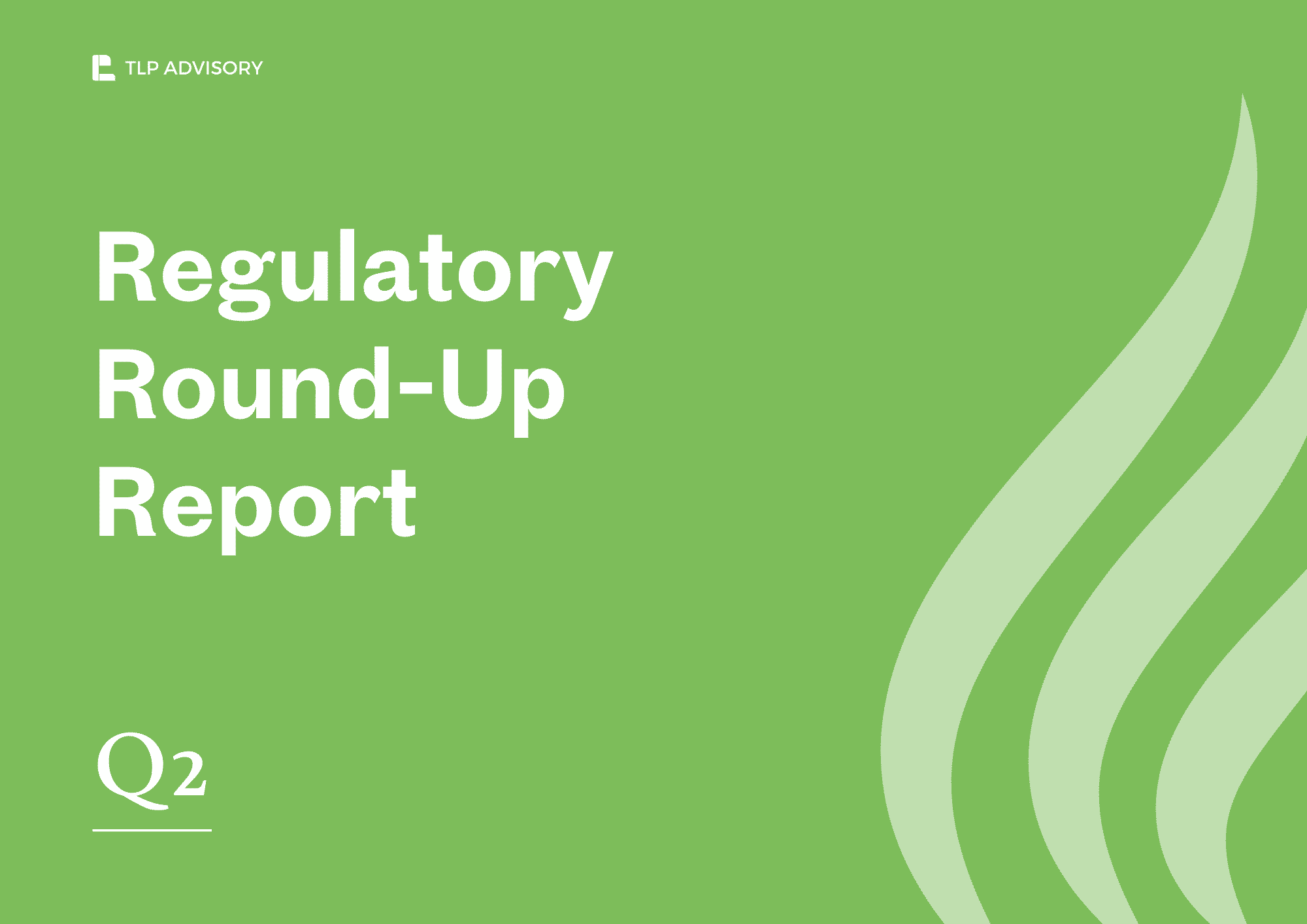
This Regulatory Round-Up Report highlights key updates from Q2 2024, including Nigeria’s latest data privacy sanctions, changes in financial regulation by the CBN, and the FTC’s new non-compete rule. Stay informed on how these developments may impact your business.
Introduction
This Regulatory Round-Up Report provides an overview of recent regulatory events and compliance developments across various jurisdictions and sectors. Our goal is to keep you well-informed about significant changes, their potential impact on businesses, and key dates for regulatory filings and compliance requirements.
We trust this report will serve as a valuable resource. Should you have any questions or require further information, please feel free to reach out to us at info@tlpadvisory.com.
Data Privacy Regulation
- NDPC sanctions several entities for data breach
The Nigeria Data Protection Commission (“the Commission”) has sanctioned 7 (seven) digital lenders for breaches of the Nigeria Data Protection Act (“the Act”) and other data protection legislation.
The Commission stated that it investigated over 1,000 entities, sanctioned several digital lending entities for data breaches resulting from the use and processing of personal data, and disclosed that the errant entities incurred sanctions totalling ₦400,000,000 (four hundred million Naira).
All data controllers and processors are implored to be meticulous with adherence to the provisions of the data protection legislation. For more details on the sanction, click here.
- NDPC issues new Draft Guidelines
On 31 May 2024, the Commission released the Draft Guidelines for General Application and Implementation Directive (GAID) 2024 and invited comments from stakeholders.
The GAID is largely focused on providing guidance on the implementation and application of the Nigeria Data Protection Act (“the Act”), which was passed into law in 2023. The GAID represents one of several attempts by the Commission to provide clarity to ambiguous portions of the Act, create a roadmap for its implementation, and enable data controllers, processors, and subjects to ascertain the rights and obligations created by the provisions of the Act.
Read the full Draft Guidelines here.
- Nigerian Data Protection Commission (NDPC) extends deadline for registration of Data Controllers / Processors of Major Importance
On 29 June 2024, the NDPC issued a notice extending the deadline for the registration of Data Controllers of Major Importance (DCMI) and Data Processors of Major Importance (DPMI) from 30 June 2024 to 30 September 2024. Defaulting entities will be mandated to pay the penalties stipulated in the Nigerian Data Protection Act 2024.
We are available to help your entity comply with the NDPC registration requirements. Please complete this form, and we will be in touch to provide guidance on the next steps.
Financial Regulation
- Revocation of Banking Licence
On 03 June 2024, the Central Bank of Nigeria (CBN) announced the revocation of the banking licence of Heritage Bank Limited. The CBN stated that the revocation was informed by the financial institution’s breach of Section 12(1) of the Banks and Other Financial Institutions Act 2020.
The CBN noted that despite its engagement and stop-gap measures, the management and Board of Heritage Bank failed to improve the bank’s financial performance. In line with the provisions of the Banking and Other Financial Institutions Act (BOFIA), the Nigeria Deposit Insurance Corporation (NDIC) has been appointed as the liquidator of the bank.
The CBN’s recent actions mirror its regulatory function of ensuring the integrity of the Nigerian financial sector.
- CBN issues new BDC Guidelines, introduces new licencing regime
On 22 May 2024, the CBN issued the new Regulatory and Supervisory Guidelines for Bureau De Change Operations in Nigeria (the “Guidelines”). The Guidelines, which are largely focused on streamlining Bureau De Change (“BDC”) operations and improving financial accessibility, Introduce a number of sweeping changes, including the introduction of nationwide and state licensing categories for BDCs and the prohibition of BDC operators from street trading, facilitating international outward transfers, financing political activities, dealing in gold or other precious metals, and dealing in crypto assets or any other virtual assets, et al.
All existing BDCs are required to apply for a new licence in the desired tier and meet the applicable capital requirements by 03 December 2024.
Employment Regulation
- FTC Bans Non-Competes
On 23 April 2024, the US Federal Trade Commission (FTC) issued the Final Non-Compete Clause Rule (the “Rule”), which will take effect on 04 September 2024 (the “Effective Date”). The Rule restricts the use of non-compete agreements and marks a significant departure from traditional employment practices within the United States of America.
While the Rule does not outright outlaw non-disclosure agreements, customer non-solicitation agreements, or employee non-solicit agreements, it prohibits these other restrictive agreements when they have the same effect as non-compete clauses.
The Rule prohibits employers from enforcing non-compete agreements on workers globally, including independent contractors and unpaid workers, and outlines distinctions for pre-existing non-competes based on the position and earnings of the employees. According to the Rule, non-competes cannot be executed with senior executives (workers earning more than $151,164 (one hundred fifty-one thousand one hundred sixty-four Dollars) annually in a “policy-making” role). After the effective date, non-competes executed by senior executives before the effective date remain enforceable.
Conclusion
The second quarter of the year saw the introduction of several prominent reforms to the global regulatory landscape, highlighting significant activity across various sectors.
In Nigeria, the Nigerian Data Protection Commission’s actions underscore the growing importance of data in the global economy and the need to protect data subjects’ rights. Meanwhile, the Central Bank’s initiatives are focused on maintaining the integrity of the financial system.
Looking ahead to the 04 September 2024 effective date, the sweeping changes introduced by the FTC have already sparked numerous lawsuits and widespread commentary. We will provide updates on this development and other regulatory changes in our next report.








